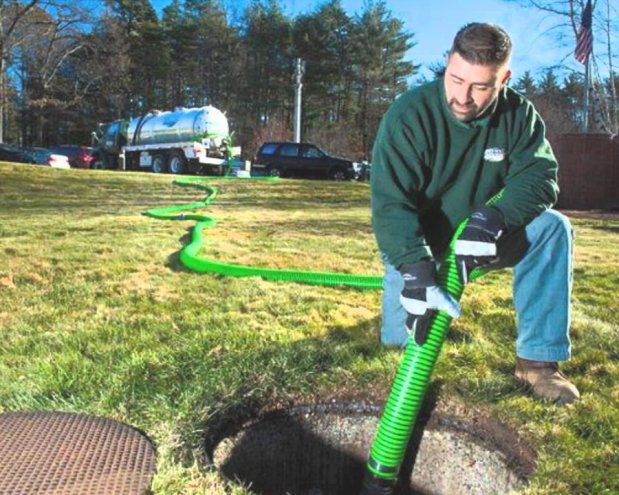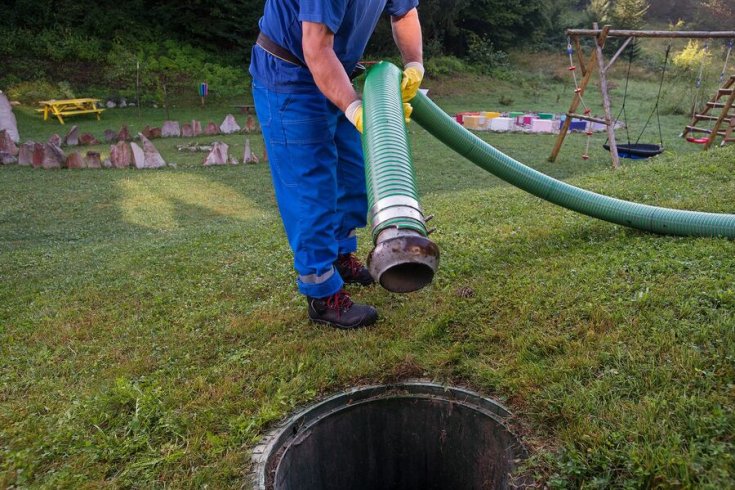
25
Septic tanks are an essential component of wastewater management in homes not connected to a municipal sewer system. Understanding how full your septic tank should be is crucial for maintaining its functionality and avoiding costly issues. This article explores the ideal fill level of a septic tank, the importance of regular septic tank pumping in Matthews, and how to work with a septic company to keep your system in optimal condition.
A septic tank is designed to separate solids from liquids in wastewater. The tank typically has three layers: a top layer of scum (fats, oils, and grease), a middle layer of liquid effluent, and a bottom layer of sludge (solid waste). The liquid effluent is what flows out of the tank into the leach field for further treatment.
It’s important to know that a septic tank should never be completely empty. In fact, it should always be partially full to function correctly. The liquid level in the tank should be at the outlet level, where the effluent flows out to the drain field. If the tank is too full, it can lead to problems like backups, while if it’s too empty, it may not properly separate the solids from the liquids.
Regular septic tank pumping is crucial for preventing overflows and maintaining the system’s efficiency. The frequency of pumping depends on several factors.
As a general rule, a septic tank should be pumped every 3 to 5 years. However, having Charlotte Septic Pros check your septic tank can provide a more accurate schedule based on your specific situation.
Working with a septic company is essential for maintaining your septic system. Professionals can assess the fill level of your tank and recommend whether it needs pumping, repair, or other maintenance. Here are some reasons why professional maintenance is recommended.
Regular maintenance and professional assistance from experts at Charlotte Septic Pros can help prevent issues and extend the life of your septic system. Whether you need septic tank repair, installation, or cleaning, staying proactive with your septic tank care will save you from costly repairs and ensure the long-term efficiency of your system.

21
Simple Habits That Protect Your Septic System A well-functioning septic system does its job quietly, but the moment something goes…
Read more
14
Pump Now or Pay Later: The Real Cost of Skipping Maintenance A properly functioning septic system is easy to forget…
Read more
11
Why Your Septic System Always Acts Up at the Worst Time Homeowners often feel that septic problems strike at the…
Read more
04
Early Warning Signs Your Septic Tank Needs Pumping For homeowners who rely on a septic system, routine maintenance is not…
Read more
29
Why Does My Septic System Smell Fine One Day and Terrible the Next? If you own a home with a…
Read more
19
Is Your Septic System Overdue? Simple Home Checks You Can Do Today For many homeowners, the septic system is a…
Read more
13
5 Signs Your Septic Tank Is Overdue for Pumping Your septic system works quietly behind the scenes, managing wastewater from…
Read more
07
Do Septic Additives Really Work? Septic additives are everywhere. You’ll see them at hardware stores, advertised online, and often recommended…
Read more
29
5 Things You’re Doing Every Day That Fill Up Your Septic Tank Faster Your septic system works quietly in the…
Read more
21
Is It Normal for Grass to Grow Greener Over My Septic Tank? If you’ve noticed a patch of grass in…
Read more